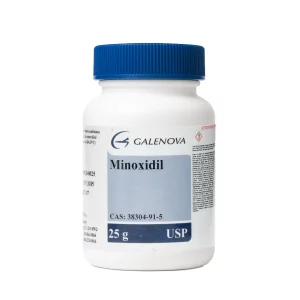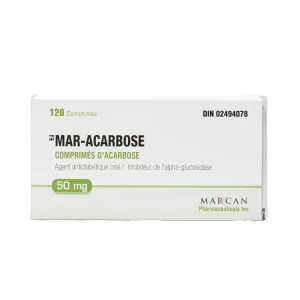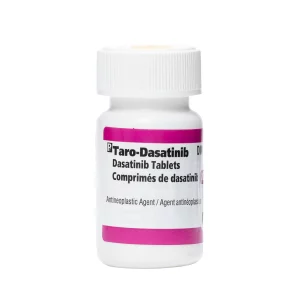Your cart is empty.
Your cart is empty.
Ozempic (semaglutide) and Metformin are two pivotal medications in managing blood sugar levels, particularly for individuals with type 2 diabetes. While both aim to achieve the crucial glycemic control goal, they operate through distinct mechanisms and are often selected based on varying health objectives and individual patient profiles. Intriguingly, beyond their established role in diabetes care, both medications have garnered attention in weight management, especially among those prioritizing longevity and preventive health strategies.
The comparison between metformin vs Semaglutide (the active ingredient in Ozempic) is frequently discussed in this context. Furthermore, Metformin has also been explored for other health benefits, such as Metformin for fertility in women with PCOS. This article will delve into a comprehensive comparison of Ozempic and Metformin, elucidating their differences in how they are used, their effectiveness in managing blood sugar and weight, and the specific goals for which each might be preferred.
Ozempic is a once-weekly injectable medication for adults with type 2 diabetes. It belongs to the glucagon-like peptide-1 (GLP-1) receptor agonist class. It mimics a natural hormone that regulates blood sugar and appetite by stimulating insulin release when glucose levels are high, inhibiting glucagon secretion, and slowing gastric emptying. Approved by the FDA, Ozempic is efficacious in improving glycemic control and can also promote weight loss.
Metformin is an oral medication classified as a biguanide to lower blood sugar. It reduces glucose production in the liver and enhances insulin sensitivity, allowing cells to use glucose more effectively. With a long history of treating type 2 diabetes, its widespread availability and affordability make it a commonly prescribed medication.
The fundamental distinctions between Ozempic and Metformin lie in their mode of administration, frequency of use, and primary mechanisms of action. Ozempic is administered via subcutaneous injection once a week and functions as a GLP-1 receptor agonist, mimicking a natural hormone to regulate blood sugar and appetite. Conversely, Metformin is an oral pill taken daily and exerts its effects by reducing hepatic glucose production and improving insulin sensitivity.
Regarding the timeline for observing results, both medications generally show effects relatively soon after initiation. However, the titration schedule often differs. Ozempic typically begins at a low dose, gradually increasing over several weeks to reach the target maintenance dose, allowing the body to adjust and minimize potential side effects. Metformin, while sometimes started at a lower dose to improve tolerability, may reach its effective dose more quickly.
While Ozempic and Metformin can potentially lead to weight loss, they achieve this through different physiological pathways. Ozempic is more frequently associated with significant weight reduction due to its impact on appetite regulation and slowed gastric emptying. The GLP-1 receptor agonism helps control blood sugar and signals satiety, reducing caloric intake.
Metformin’s effect on weight is generally more modest and gradual. While some individuals may experience weight loss while taking Metformin, it is not considered a primary weight-loss medication. Its impact on weight is related to its effects on insulin sensitivity and energy metabolism. It’s crucial to recognize that individual responses to both medications can vary, and weight outcomes are not guaranteed.

The choice between Ozempic and Metformin for blood sugar control often depends on the individual’s specific clinical situation, the severity of their hyperglycemia, and other health conditions. Metformin is frequently considered the first-line treatment for type 2 diabetes due to its well-established safety profile, effectiveness in lowering blood sugar, and potential cardiovascular benefits.
Ozempic is often considered as an add-on therapy when blood sugar levels remain inadequately controlled despite treatment with Metformin or other oral antidiabetic medications. Its potent glucose-lowering effects and additional benefits, such as weight loss and cardiovascular risk reduction observed in clinical trials, make it a valuable option for many individuals with type 2 diabetes, particularly those with established cardiovascular disease or a high risk thereof.
For individuals focused on longevity and enhancing their healthspan, Ozempic and Metformin have generated considerable interest. Ozempic’s ability to promote weight loss and potentially reduce inflammation may appeal to those seeking to mitigate age-related obesity-related conditions and chronic inflammation.
On the other hand, Metformin is being actively studied for its potential anti-aging properties. Some research suggests it may influence aging-associated cellular processes and could extend healthspan. However, these findings are preliminary and not yet established for widespread use in healthy individuals. Regardless of these potential benefits in preventive health, it is paramount to emphasize that using both medications should only occur under strict medical guidance and for approved indications or within the context of well-designed clinical trials. Self-medication for longevity purposes is not advisable.

Ozempic and Metformin also differ in terms of accessibility and convenience. Metformin, an oral medication, is considered convenient for many individuals as it can be easily incorporated into a daily routine. Its widespread availability often translates to lower out-of-pocket costs, especially for generic formulations.
Ozempic, as an injectable medication, may present a barrier for some individuals who are uncomfortable with injections. The once-weekly dosing can be convenient for adherence, potentially reducing the burden of daily medication management compared to Metformin. However, the cost of Ozempic may be higher than that of generic Metformin’s, and its availability might be subject to insurance coverage.
In certain clinical situations, healthcare providers may prescribe Ozempic and Metformin together for better blood sugar control and weight management. Metformin improves insulin sensitivity and reduces glucose production, while Ozempic boosts insulin secretion, suppresses glucagon, and slows gastric emptying. This combination can be especially effective for those needing significant glucose lowering and reduced cardiovascular risk. However, the decision to use both should be guided by a healthcare professional to evaluate individual needs and monitor for side effects.
Yes, switching from Metformin to Ozempic is possible, but it should only be done under the guidance of a healthcare provider. The decision depends on various factors, including your blood sugar control on Metformin, overall health goals (e.g., greater weight loss), and any side effects you may be experiencing.
Both Ozempic and Metformin are primarily approved for treating type 2 diabetes. However, healthcare providers may sometimes prescribe them “off-label” for other conditions, such as weight management or, in the case of Metformin, for polycystic ovary syndrome (PCOS) or investigational longevity purposes.
In clinical studies, Ozempic has generally been shown to result in more significant weight loss than Metformin. This is primarily attributed to its appetite-regulating effects mediated by GLP-1 receptor agonism.
No, Ozempic is a prescription medication indicated for specific health conditions, primarily type 2 diabetes. Its use in healthy individuals is not recommended and could lead to adverse effects.
Yes, Metformin is also studied and sometimes used off-label for other conditions, including PCOS, and for its potential effects on longevity and age-related diseases. However, it is not officially approved for these uses.

Minoxidil 25mg - Oral vasodilator for blood pressure management. Cardiovascular foundation support, pharmaceutical-grade standards, expert monitoring required.

Acarbose 50mg 120 Tablets - Gentle introduction to glucose control. Three-times daily with meals, precision-formulated tablet strength.

Dasatinib 20mg 60 Tablets - Flexible pediatric-strength dosing option. USP standards compliance, anytime administration, gradual increase capability.
Unlock savings on bundles and elevate your online experience today!